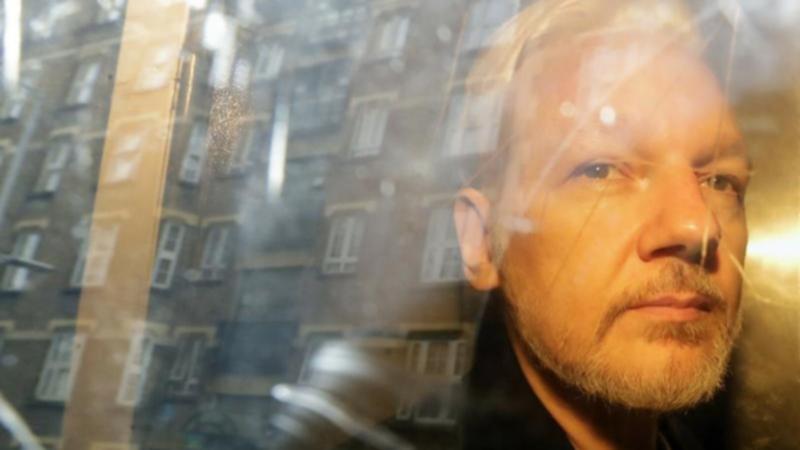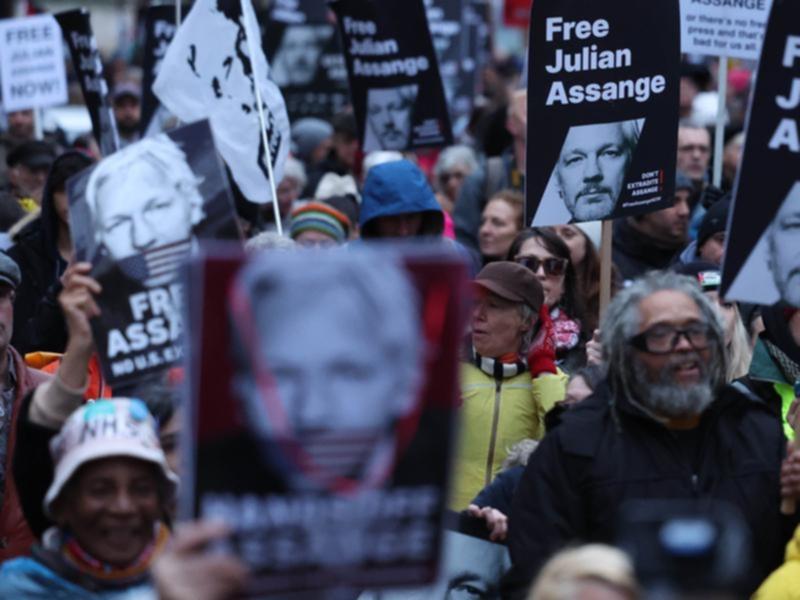SIMON BIRMINGHAM: As Julian Assange hits the headlines yet again, should you care?
Some parts of the Julian Assange saga involve important principles. Others relate to personal interest. My advice is to care about the former and dismiss the latter, writes Simon Birmingham.

Julian Assange. Have you stopped reading yet? I understand. Some things seem to go on forever, grabbing news headlines, even as many switch off.
So, as Assange hits the headlines yet again, should you care? Yes and no. Some parts of this saga involve important principles. Others relate to personal interest. My advice is to care about the former and dismiss the latter.

Sign up to The Nightly's newsletters.
Get the first look at the digital newspaper, curated daily stories and breaking headlines delivered to your inbox.
By continuing you agree to our Terms and Privacy Policy.Firstly, the principles. These relate to a free media, national interest, judicial fairness and citizenship. Each of these principles matter greatly and should be taken seriously, but can be interpreted differently.
Freedom of the press is fundamental for the functioning of democracy. Media freedoms must be protected to ensure effective scrutiny of government and other powerful interests. However, such freedoms cannot be unfettered and come with concomitant responsibilities.
Supporters of Julian Assange often assert that he is a journalist, who they say is being prosecuted and persecuted in breach of democratic commitments to media freedoms. But is Assange really a journalist, or through Wikileaks a publisher, to whom we should attach such standards of media freedoms?
The subject of Assange’s current legal battles goes back to his 2010 public release on the Wikileaks platform of almost half a million classified United States documents relating to the wars in Iraq and Afghanistan. Exposing some of this information may have been in the public interest, but there were no journalistic judgments applied to precisely what information was released.
Assange just dumped hundreds of thousands of documents into the public domain, with an attitude of publish and be damned with the consequences.
This is where the second critical principle comes into play, the protection of national interest and national security. Certain information is restricted from the application of media freedoms so that defence and intelligence operations can keep all of us safe.
In the endless media frenzy that surrounds his circumstances, let us respect the principles that are at stake, no matter how long it takes.
Public interest journalism seeks to carefully manage the merits of exposing the mistakes of governments or officials, versus risking the safety of innocent civilians, defence personnel or others where the publication of their identities or circumstances could imperil their lives or wellbeing. Julian Assange appears to have applied no such judgment in his “radical transparency”, which by some reports included publishing sensitive personal data of hundreds of ordinary people, including sick children, rape victims and people with mental health problems.
The array of documents he published included, according to the US charges laid against Assange, the names of “local Afghans and Iraqis, journalists, religious leaders, human rights advocates, and political dissidents” who helped the United States. To contemplate how these people, once exposed, may have been treated by terrorists like the Taliban is the stuff nightmares are made of.
It is also alleged that Assange “provided rules of engagement files for the Iraq war … which delineated the circumstances and limitations under which United States forces would initiate or conduct combat engagement with other forces”.
Whatever people think of the Iraq War, I would be horrified if any Australian thought it wise to place the lives of our service personnel in danger by publicly revealing the limitations placed upon them and their allies when in combat. Yet Julian Assange did just that.
These charges lead us, 14 years later, to principles of judicial fairness. Assange last night faced the latest instalment in US efforts to extradite him from the United Kingdom to face trial.
Some make misguided calls that, because Assange is an Australian citizen, our Government should stop his extradition and prevent him facing trial. But these are not Australian legal proceedings. They are British and American judicial processes. Australia has no right to simply say no, just as foreign governments have no rights to control our judicial processes.
What’s more, Assange is appearing before courts and judicial systems that we should respect and defend. Our own system of judicial fairness embodies the best of British. In a world of authoritarian threats and increased conflict we don’t have much left if we undermine the judicial processes of our closest allies.

As an Australian citizen, Julian Assange is entitled to our consular services ensuring his fair treatment and wellbeing. We should advocate consistent with our national values, such as protection from the death penalty. But just because Mr Assange is an Australian citizen does not mean we automatically protect him from criminal proceedings if crimes were committed in other countries.
Many agree that the Assange saga has gone on too long. I agree. However, let us not forget that he spent seven years avoiding legal proceedings by seeking asylum in the Ecuadorian embassy. This record of avoiding justice helps to explain why Assange is jailed and not bailed in relation to his current proceedings.
Mr Assange is entitled to his many days in court; to appeal and appeal again. He may be freed; he may not. But in the endless media frenzy that surrounds his circumstances, let us respect the principles that are at stake, no matter how long it takes.
Simon Birmingham is the shadow minister for foreign affairs.
